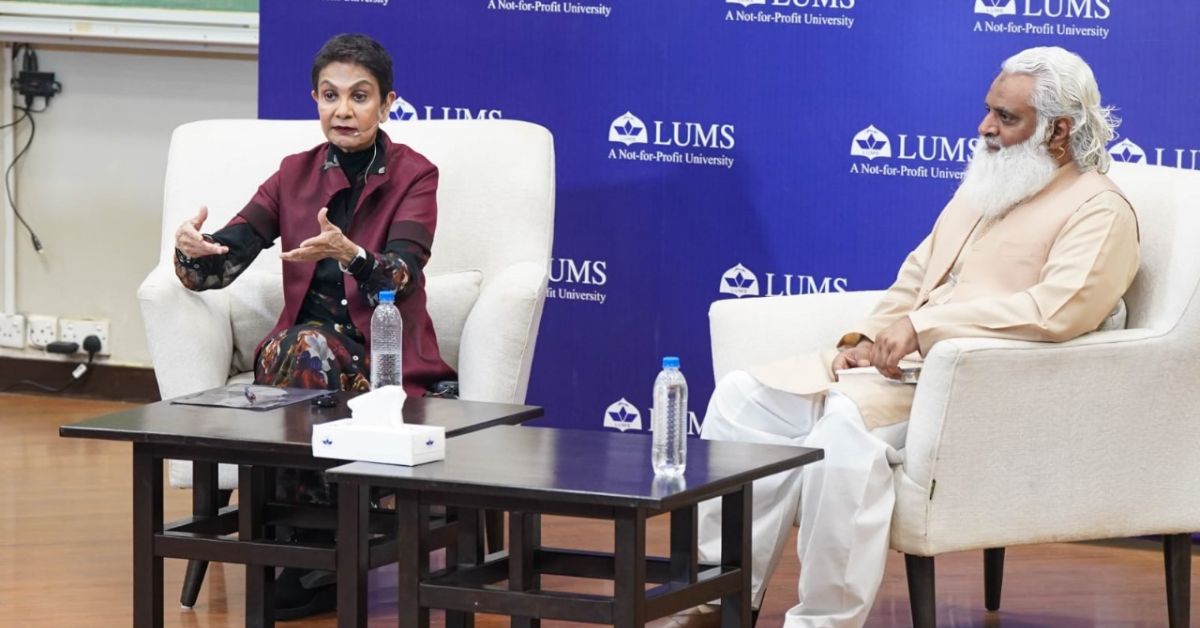The Remarkable Journey of Salah ad-Din and the Reshaping of Jerusalem
History is filled with tales of valor, strategy, and pivotal moments that have shaped the world as we know it. One such tale is the conquest of Jerusalem by Salah ad-Din, an event that stands not only as a testament to military prowess but also as a significant turning point in the cultural and religious landscape of the Middle East. This blog post will take you on a captivating voyage through Salah ad-Din’s incredible feat, exploring the strategies, motivations, and repercussions of his greatest achievement. Whether you’re a history aficionado or simply curious about the past events that echo into our modern world, this exploration aims to provide you with a vivid understanding of this monumental episode.
The Context of the Crusades
To appreciate Salah ad-Din’s conquest, we must first understand the backdrop of the Crusades. The late 11th century saw the launch of the First Crusade, a campaign initiated by European Christians to reclaim Jerusalem from Muslim rule. This resulted in the establishment of several crusader states, including the Kingdom of Jerusalem. Over time, these states became entrenched in the region, leading to a series of conflicts known as the Crusades.
The Crusades were not merely religious wars; they were also driven by political and economic factors. European nobles sought power and wealth, while the Church aimed to unite Christendom under its spiritual leadership. The Kingdom of Jerusalem, a beacon for Christian pilgrims, was at the heart of these ambitions. Understanding this context is crucial, as it sets the scene for Salah ad-Din’s eventual rise and the enormous challenges he faced. His subsequent actions would not only alter the course of the Crusades but also leave an indelible mark on the history of Jerusalem.
Salah ad-Din’s Early Life and Rise

Born in 1137 in Tikrit, Salah ad-Din, commonly known as Saladin, was a product of a world rife with conflict and cultural fusion. His early years were spent in Baalbek and Damascus, where he received a comprehensive education in science, mathematics, and military tactics. Salah ad-Din came from a Kurdish family that served the powerful Zengid dynasty, which played a pivotal role in shaping his military career.
Salah ad-Din’s talents were recognized early on by his uncle, Shirkuh, a prominent general in the service of Nur ad-Din, the ruler of Syria. Under his uncle’s tutelage, Salah ad-Din honed his skills in leadership and strategy. He quickly rose through the ranks, gaining a reputation for both his chivalry and his tactical acumen. By 1169, Salah ad-Din had assumed the position of vizier in Egypt, marking the beginning of his ascendancy. His leadership abilities and vision soon led to the unification of Egypt and Syria, laying the groundwork for his ultimate challenge—the conquest of Jerusalem.
The Motivation Behind the Conquest
Salah ad-Din’s motivation for capturing Jerusalem was multifaceted. Firstly, the city held immense religious significance for Muslims, housing the Al-Aqsa Mosque, a place of profound spiritual importance. Reclaiming Jerusalem was seen as a unifying goal for the Muslim world, which had been divided by internal strife and fragmentation for decades. Salah ad-Din aspired to unite the Muslim territories under a common cause, and Jerusalem represented both a symbolic and strategic prize.
Furthermore, the conquest was a response to the aggressive expansion of the Crusader states. The friction between Muslim rulers and the Crusaders had led to numerous skirmishes and sieges. Salah ad-Din sought to end this cycle of conflict by decisively recapturing Jerusalem and diminishing the Crusader foothold in the Holy Land. Lastly, Salah ad-Din’s personal conviction and sense of duty played a crucial role. His reputation as a just and pious leader resonated across the Muslim world, and reclaiming Jerusalem was seen as a fulfillment of his moral and religious obligations.
The Strategic Genius of Salah ad-Din
Salah ad-Din’s military tactics were instrumental in his conquest. He meticulously planned his campaign, focusing on weakening the Crusader states before launching his assault on Jerusalem. Salah ad-Din utilized a combination of diplomacy, siege warfare, and guerrilla tactics to achieve his goals. His strategic acumen was evident in the Battle of Hattin in 1187, which was a turning point in the campaign.
At Hattin, Salah ad-Din lured the Crusader forces away from their fortified positions and trapped them in arid terrain, where they were deprived of water and reinforcements. This decisive victory effectively crippled the Crusader army, leaving Jerusalem vulnerable. Salah ad-Din’s ability to adapt his tactics to the situation, including his emphasis on psychological warfare and negotiation, showcased his comprehensive understanding of warfare. His approach not only minimized unnecessary bloodshed but also demonstrated his respect for the sanctity of life, earning him admiration even among his adversaries.
The Siege of Jerusalem
The actual siege of Jerusalem commenced on September 20, 1187. Salah ad-Din’s forces surrounded the city, cutting off supplies and reinforcements. Unlike many sieges of the period, Salah ad-Din sought to minimize destruction and casualties. He engaged in negotiations with Balian of Ibelin, the city’s defender, offering terms that would allow for the peaceful surrender of Jerusalem.
The siege lasted until October 2, 1187, when Balian, recognizing the futility of further resistance, agreed to surrender. Salah ad-Din entered Jerusalem with his army, ensuring that the transition of power was conducted with dignity and order. The city’s residents were treated with respect, and religious sites were preserved. Salah ad-Din’s conduct during the siege stood in stark contrast to the brutality often associated with medieval warfare, cementing his legacy as a just and honorable leader.
The Aftermath and Legacy
The capture of Jerusalem sent shockwaves across the Christian world, prompting the launch of the Third Crusade. However, Salah ad-Din’s reputation as a chivalrous and magnanimous conqueror remained intact. His fair treatment of Jerusalem’s inhabitants and his willingness to negotiate with Christian leaders, including Richard the Lionheart, earned him respect and admiration beyond religious and cultural boundaries.
Salah ad-Din’s legacy extended far beyond his military achievements. He became a symbol of unity and righteousness in the Muslim world, inspiring generations to come. His leadership style emphasized compassion, tolerance, and diplomacy, principles that continue to resonate today. Salah ad-Din’s conquest of Jerusalem remains one of history’s most remarkable episodes, illustrating the profound impact of visionary leadership.
Cultural and Religious Implications
The conquest of Jerusalem had significant cultural and religious implications. For Muslims, it marked the restoration of Islamic sovereignty over one of their holiest cities. The event rekindled a sense of unity and purpose among Muslim communities, reinforcing their connection to Jerusalem and their shared heritage. Salah ad-Din’s respectful treatment of religious sites and his efforts to protect the city’s diverse population underscored the importance of coexistence and mutual respect.
For Christians, the loss of Jerusalem served as a rallying cry for renewed efforts to reclaim the Holy Land. The Third Crusade, led by iconic figures such as Richard the Lionheart, was driven by a determination to restore Christian control over Jerusalem. Although the crusaders achieved some successes, they ultimately failed to retake the city. The ongoing struggle for Jerusalem highlighted the complexities of religious coexistence and the enduring significance of the city to multiple faiths.
Lessons in Leadership
Salah ad-Din’s leadership offers valuable lessons for contemporary leaders. His emphasis on unity, justice, and empathy remains relevant in today’s complex world. Salah ad-Din’s ability to forge alliances, negotiate diplomatically, and balance military strategy with humanitarian principles underscores the importance of holistic leadership. His legacy serves as a reminder that leadership is not solely about achieving objectives but also about inspiring others and fostering a sense of shared purpose.
Modern leaders can draw inspiration from Salah ad-Din’s commitment to ethical conduct and his dedication to the welfare of his people. His vision extended beyond the battlefield, encompassing a broader vision of societal harmony and progress. By prioritizing integrity and compassion, leaders can build bridges, resolve conflicts, and create lasting positive impacts within their communities.
The Symbolism of Jerusalem
Jerusalem’s significance transcends religious and political boundaries. It is a city that embodies the aspirations, struggles, and hopes of multiple cultures and faiths. Salah ad-Din’s conquest of Jerusalem serves as a poignant reminder of the city’s enduring symbolism. Throughout history, Jerusalem has been a focal point for dialogue, reconciliation, and coexistence.
The city’s intricate tapestry of religious and cultural traditions highlights the potential for harmony in diversity. Jerusalem’s historical narrative encourages us to appreciate the shared heritage and values that bind humanity together. By acknowledging and celebrating our commonalities, we can work towards a future where Jerusalem serves as a beacon of peace and understanding.
Engaging with History
Understanding the events of the past is essential for navigating the challenges of the present and future. Salah ad-Din’s conquest of Jerusalem offers a lens through which we can explore themes of leadership, conflict resolution, and cultural interplay. Engaging with history allows us to learn from the triumphs and mistakes of those who came before us, equipping us with valuable insights to address contemporary issues.
Studying historical figures like Salah ad-Din encourages us to reflect on our own roles as global citizens. By examining his legacy, we can gain a deeper appreciation for the qualities that define effective leadership and contribute to the betterment of society. History is a living tapestry, and our understanding of it shapes the narratives we create for ourselves and future generations.
Conclusion
Salah ad-Din’s conquest of Jerusalem stands as a testament to the enduring impact of visionary leadership. His remarkable achievement not only reshaped the course of history but also left a lasting legacy of unity, compassion, and resilience. Salah ad-Din’s story reminds us of the power of individuals to effect positive change on a grand scale.
As we reflect on Salah ad-Din’s legacy, we are invited to consider how we, too, can contribute to shaping a world characterized by understanding, cooperation, and harmony. By drawing inspiration from the past, we can forge a brighter future, one that reflects the values and principles embodied by Salah ad-Din’s remarkable life.










